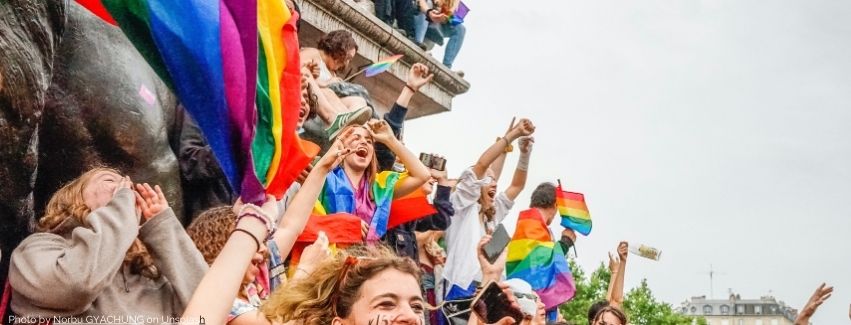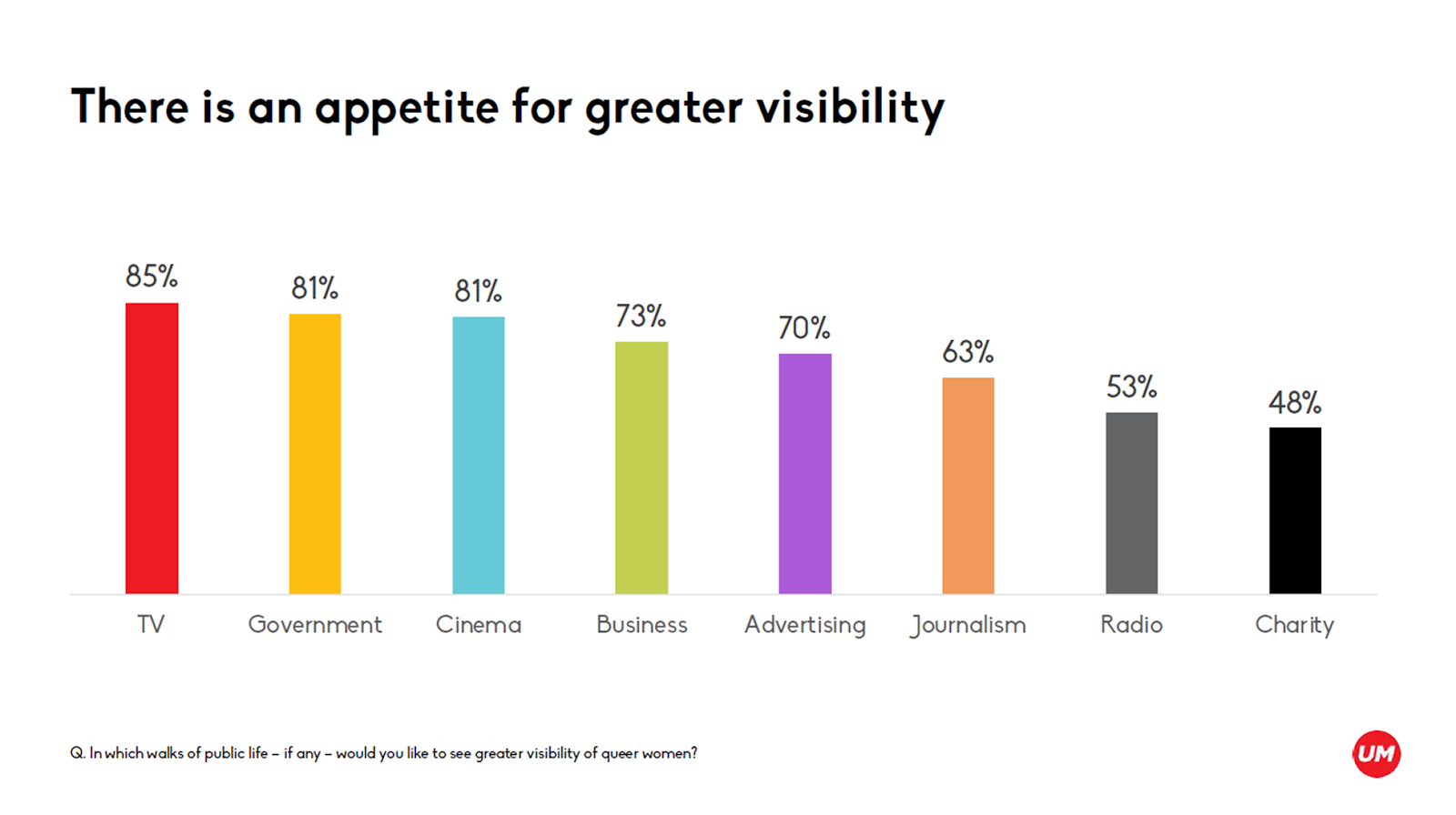
One of my favourite films is Pride. I remember watching it at the cinema with a friend, and like many, I cried at the end, when the miners drove to London to support the gays who had raised thousands for them during the strikes of the 1980s.
My friend and I both looked knowingly at one another when one of the women from Wales jumped out of the van shouting ‘Where are my lesbians?’
She had a good point.
Research shows that queer women are almost twice as unlikely to be out as queer men in the workplace. And in my consultancy work, I often talk to network leads who complain that it’s hard to find LGBTQ+ women and those who are non-binary to join and contribute.
In my four years on the board of Pride in London I often attended events and found that less than 20% of the attendees were women. And I have long challenged panels at LGBTQ+ events that are male dominated. I know Awards organisers who tell me they struggle to get nominations from and for queer women and those that are non-binary.
Is it a case that there are less LGBTQ+ women and those that are non-binary about? Or are we just being less visible on purpose?
A survey by Universal Mcann highlighted a massive 92% or respondents saying that there was some or a lot of stigma towards queer women. And many see ‘lesbian’ as a loaded word.
Recent research from My GWork showed that 7/10 LGBTQ+ women and non-binary professionals have experienced discrimination at work. And that figure rises for those with intersectional experiences.
More worryingly, according to research by charity Just Like Us, Lesbians are most likely out of all young adults to feel ashamed of being LGBTQ and that almost 2/3rds (68%) delay coming out due to unhelpful prejudices. These include being seen as ‘masculine’, ‘over-sexualised’, ‘man-hating’, ‘anto-trans’, ‘unattractive’ and ‘embarrassing’.
I have encountered a lot of these issues myself. When I was setting up Out & Wild Festival I was looking for imagery of LGBTQ+ sport. I typed ‘gay sport’ into a well known search engine and got images of mainly male athletes, when I typed ‘lesbian sport’ I was warned it was sexually explicit content. And at a LGBTQ+ Conference I overheard two panelists say ‘Gay men are upmarket and gay women are downmarket’, just after their session had finished.
And in the years I have been a speaker at events, I am hardly ever asked to talk specifically about Lesbian Visibility.
Queer women face the double glass ceiling of gender and sexual orientation at work. In fact many I speak to say that they purposefully join the gender networks, because they feel they will make greater progress here
Many also lack the confidence to speak up or nominate themselves for awards or recognition for what they do. Some just tell me it’s better to live under the radar, especially if they want to progress at work.
But in the last year, I have sensed a growing frustration and call for greater voice and visibility. I know in my case, the research from Just Like Us almost made me focus my attention. I did not come out until 41, largely because of unhelpful prejudices and a lack of visibility. I did hope that 40 years later we would see better understanding and acceptance of queer women and those that are non-binary.
I co-founded OUTSpoken Speakers Network with Raga D’silva to create a social movement that drives more voice and visibility for LGBTQ+ women and those that are non-binary. We are the UK’s first Speaker agency that is focused on this community. We will platform existing voices but also provide training, support and networking to develop new ones. Our aim is not just to have more public speakers, but to provide LGBTQ+ women and those who are non-binary, with the confidence to speak out in their daily work life, be that in a meeting or presenting to teams.
We do want to tell our unique stories and challenge some of the unhelpful stereotypes that exist. But we also want to just show that queer women and those who are non-binary can be experts in their own fields, and make an impact in business, media, sport, not for profit and beyond.
We want to create more visible role models and provide inspiration to a younger generation.
And I want to never hear again that companies have all male gay panels because they could not find a LGBTQ+ women or non-binary speaker.

By Polly Shute
 +44 7803 777601
+44 7803 777601  +91 8447 737184
+91 8447 737184

Comments
Leave A Reply